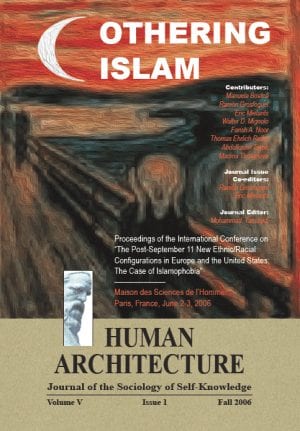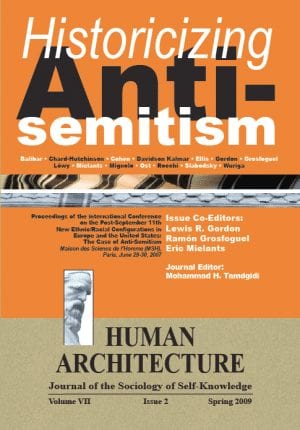Journal Article — No Race to the Swift: Negotiating Racial Identity in Past and Present Eastern Europe — by Manuela Boatcã
$15.00
Portrayals of Eastern European countries as “bridges” between East and West are commonplace both in the media and in the political discourse. While the question of the historical origin of Europe’s East-West divide is still under heavy dispute among social scientists, it can be argued that it was the Orientalist discourse of the 19th century that decisively shaped the content of the present categories of Western and Eastern Europe and made policies of demarcation from “the Orient” an important strategy of geopolitical and cultural identification with Europe.
Description
Abstract
Portrayals of Eastern European countries as “bridges” between East and West are commonplace both in the media and in the political discourse. While the question of the historical origin of Europe’s East-West divide is still under heavy dispute among social scientists, it can be argued that it was the Orientalist discourse of the 19th century that decisively shaped the content of the present categories of Western and Eastern Europe and made policies of demarcation from “the Orient” an important strategy of geopolitical and cultural identification with Europe. The enduring quality of Orientalism’s effects on both national self-definitions and social and cultural policy in Eastern Europe is examined in the present paper in two successive steps: first, by looking at the intellectual discourse in 19th century Romania against the background of the country’s political independence from the Ottoman Empire and increasing economic, cultural and political orientation toward Western Europe; second, by discussing the resurgence of systems of representation based on this type of discourse in the context of the European Union’s “Eastern enlargement”. In the first case, the terms of the Western European discourse were appropriated such as to make the “Oriental barbarism” in which Romanian society had been “steeped” until acquiring independence from the Ottoman Empire the point of departure for the development of a European (civilized, Christian, modern) identity. In the second case, the degree of connection to the Ottoman, and therefore Islamic legacy of Eastern European candidates to the European Union has been reinstrumentalized as a legitimating strategy for discursive practices of inferiorization, exoticization, and racial othering that parallel the region’s economic peripheralization.
Recommended Citation
Boatcã, Manuela. 2007. “No Race to the Swift: Negotiating Racial Identity in Past and Present Eastern Europe.” Pp. 91-104 in Othering Islam (Human Architecture: Journal of the Sociology of Self-Knowledge: Volume V, Issue 1, 2007.) Belmont, MA: Okcir Press (an imprint of Ahead Publishing House).
The various editions of Othering Islam can be ordered from the Okcir Store and are also available for ordering from all major online bookstores worldwide (such as Amazon, Barnes&Noble, and others).
Read the Above Publication Online
To read the above publication online, you need to be logged in as an OKCIR Library member with a valid access. In that case just click on the large PDF icon below to access the publication. Make sure you refresh your browser page after logging in.








